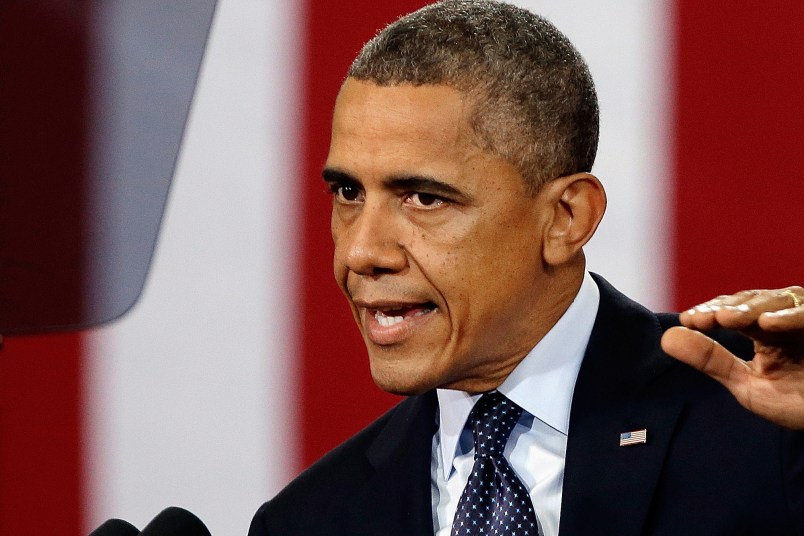President Barack Obama appears to have options to act alone to fill the birth control coverage gap for thousands of women created by the Supreme Court’s ruling against Obamacare’s contraceptive mandate, legal experts say.
The Supreme Court said religious business owners like Hobby Lobby may opt out of providing cost-free insurance coverage for emergency contraception such as the morning-after pill and intrauterine devices (IUDs), which means their female employees would have no option other than to pay for birth control out-of-pocket.
This creates a hole in Obamacare’s preventative care coverage, but the White House has options. One action the President could take is to simply extend to these women an accommodation his administration offered to employees of religious nonprofits like universities and hospitals: employers can opt out of it but insurance companies are required to pay the full cost of the contraception for female employees who want it.
“I think that’s exactly what the court contemplates,” said Tim Jost, a law professor at Washington and Lee University. “Female employes can be covered by an extension of the accommodation that now applies to the religious [nonprofit] organizations.”
In his 5-4 majority opinion in Hobby Lobby v. Burwell on Monday, Justice Samuel Alito suggested that as one way to provide birth control coverage without running afoul of the 1993 Religious Freedom Restoration Act, which imposes strict scrutiny standards for laws that burden religious practices.
“The Government could, e.g., assume the cost of providing the four contraceptives to women unable to obtain coverage due to their employers’ religious objections. Or it could extend the accommodation that HHS has already established for religious nonprofit organizations to non-profit employers with religious objections to the contraceptive mandate,” Alito wrote for the Court. “That accommodation does not impinge on the plaintiffs’ religious beliefs that providing insurance coverage for the contraceptives at issue here violates their religion and it still serves HHS’s stated interests.”
The first option would require an act of Congress, far from likely in the current political climate. But an extension of the accommodation could be done by executive action. The problem for the Obama administration is that even the nonprofit accommodation is being challenged in court by Little Sisters of the Poor, which says it violates their religious beliefs to fill out a form opting out of the birth control coverage. But the five Republican-appointed justices who ruled against the White House suggested that accommodation wasn’t a serious burden on religious practices.
“It seems the justices are sending a clear signal to the lower courts saying this is enough of an accommodation,” Jost said.
In a brief opinion agreeing with the outcome, Justice Anthony Kennedy also suggested the extension would be legal and more appropriate. “That accommodation equally furthers the Government’s interest but does not impinge on the plaintiffs’ religious beliefs,” he wrote.
The Department of Health and Human Services referred TPM to the White House, which on Tuesday morning declined to comment for this article. Women’s advocacy groups want to see the problem fixed for workers who are harmed by the ruling.
“At this point, not only does a female employee not get birth control with no copay, Hobby Lobby doesn’t have to cover birth control at all,” said Samantha Gordon, a spokeswoman for the pro-choice group NARAL.
Within hours of the ruling, the White House called on Congress to fix the problem and said it was also weighing executive options to level the inequities created for female employees whose religious bosses opt out of providing birth control in their insurance plans.
“As we assess the impact of this decision, we’ll consider whether or not there is a range of other options that may be available that don’t require legislative action,” White House spokesman Josh Earnest told reporters.







if the President does that, the next thing you know the crazies will demonize it as ogynocare
#StopOgynocareNow
#benghazi
#chemtrails
Get out your tinfoil tampons!
Since when does the SCOTUS offer fixes. That is the job of the legislative branch of government.
The SCOTUS says the gov’t can pick up the tab? FUKKEMM!!!
The court has often noted, when saying something can’t be done, guidelines for crafting language more narrowly so as to fit within the boundaries of its ruling. That’s not new.
“You can’t do it that way. You could maybe do it this way, or this other way, but you can’t do it that way.”